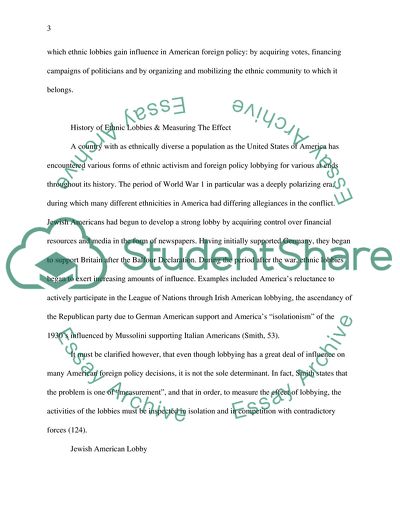Cite this document
(Influence of Ethnic Lobbies on American Foreign Policy Report Example | Topics and Well Written Essays - 1500 words, n.d.)
Influence of Ethnic Lobbies on American Foreign Policy Report Example | Topics and Well Written Essays - 1500 words. https://studentshare.org/politics/1761853-joseph-nyes-the-future-of-power-2011-tony-smiths-foreign-attachments-2000
Influence of Ethnic Lobbies on American Foreign Policy Report Example | Topics and Well Written Essays - 1500 words. https://studentshare.org/politics/1761853-joseph-nyes-the-future-of-power-2011-tony-smiths-foreign-attachments-2000
(Influence of Ethnic Lobbies on American Foreign Policy Report Example | Topics and Well Written Essays - 1500 Words)
Influence of Ethnic Lobbies on American Foreign Policy Report Example | Topics and Well Written Essays - 1500 Words. https://studentshare.org/politics/1761853-joseph-nyes-the-future-of-power-2011-tony-smiths-foreign-attachments-2000.
Influence of Ethnic Lobbies on American Foreign Policy Report Example | Topics and Well Written Essays - 1500 Words. https://studentshare.org/politics/1761853-joseph-nyes-the-future-of-power-2011-tony-smiths-foreign-attachments-2000.
“Influence of Ethnic Lobbies on American Foreign Policy Report Example | Topics and Well Written Essays - 1500 Words”. https://studentshare.org/politics/1761853-joseph-nyes-the-future-of-power-2011-tony-smiths-foreign-attachments-2000.


